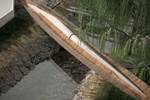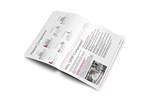IFTH, Cetim and IPC present online guide for eco-design, recycling of composites
The online guide, jointly produced by three French industrial technical centers active in the field of composites, maps the challenges and current options available for recycling in France.
Photo Credit: Cetim, IPC and IFTH
Environmental impact is a major obstacle in the development of composites in the coming years. To keep pace with ongoing industrial developments and environmental responsibility issues, the (IFTH, Paris), Cetim (Senlis, France) and the (IPC, Laval, France), three industrial technical centers active in the field of composites, have published a “Guide for the Recycling and Ecodesign of Composites” (GREC) handbook using the latest market data and technical progress. GREC is now available for download in English.
GREC presents an overview of the status and challenges of eco-design and recycling of composite materials addressed in five main chapters. Jointly compiled, this guide aims to:
- Introduce readers to the history and properties of composites, in addition to a market overview.
- Qualitatively and quantitatively map the material flows and sources of waste in the French composites industry from 2020-2040. This data also feeds into a discussion on the options for waste reuse sector models.
- Draw up an overview of the latest possibilities for the reuse of composite waste with a low environmental impact, from full reuse to energy recovery and storage, including different recycling options.
- Present eco-design methodologies, including lifecycle analyses the investigation and discussion of the environmental performance of a few composite solutions.
- Compile a directory of French companies that can process composite waste.
GREC is available in two formats. The full report, available in French, can be found on the . The summary brochure, is available in French and in English on the Cetim website. Please note, that users will need to create a Cetim account (free) to access the latter.
Related Content
-
Scaling up thermoplastic composites recycling
Thermoplastic composites are always said to be “recyclable.” Netherlands-based recycler Spiral RTC discusses the process, challenges, applications and opportunities to building a real recycling ecosystem.
-
PUR composite sandwich panels for 3D automotive parts, high-volume panels and more
At its U.S. sites, Ascorium produces glass fiber/PUR 3D parts via semi-automated molding, high-volume flat panels via a continuous line while working toward bio-based PUR and recycling.
-
ZEBRA project demonstrates closed-loop wind recycling system
Consortium partners have proven the complete recycling of thermoplastic wind turbines via two manufactured wind blades, featuring reduced operating cost, CO2 emissions.



